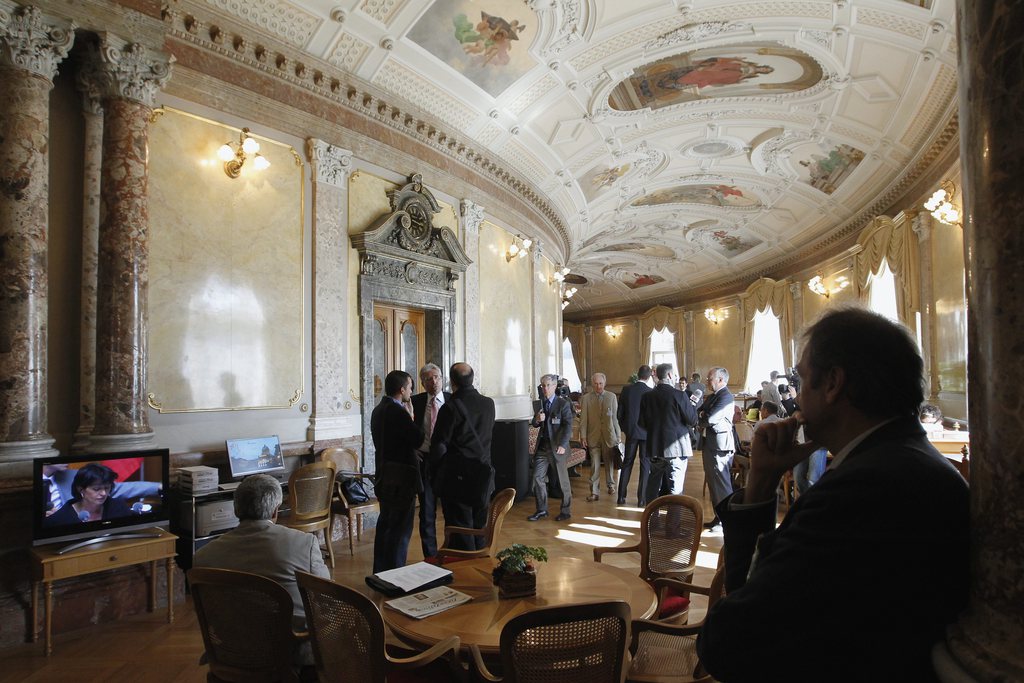Political lobbying on the rise in Switzerland

Links between parliamentarians in Bern and lobby groups have grown steadily in recent years, according to a study by the Universities of Lausanne and Geneva. Between 2007 and 2015, these sorts of ties between interest groups and politicians increased by 20%.
The academic research, featured in Swiss newspaper Le Matin Dimanche, reflects how Swiss parliamentarians registered their interests between 1992 and 2015. During this period, the number of links increased from 200 to 556.
A 2004 court ruling said that all such interests must be registered, which would help explain the rise. The ruling resulted from a case involving a former Cabinet chief, Peter Hess, who did not publicly disclose many of his contacts. For the two most recent parliamentary legislatures since 2007, the lobbying rose by about 20%.
André Mach, one of the researchers behind the report, said that the figures were “striking.” “They show a clear uptake in the activity of interest groups within the Swiss parliament,” he told swissinfo.ch.
Politicians can make a lot of money by consulting with interest groups, according to the Swiss newspaper, which cites a “health reflection group” run by Groupe Mutuel that pays parliamentarians CHF10,000 ($10,005) to attend four sessions a year that last 2-3 hours and conclude with a free meal.
Swiss parliamentarians must declare their business interests, but not their financial ties.
Committee-specific targeting
Researchers from the universities of Lausanne and Geneva prepared the data by classifying the types of lobbyists – businesses, economic groups and non-governmental organisations, for example – and policy areas such as health, transport and energy. Then they calculated which ties were the most relevant by identifying the parliamentarians’ committee assignments.
The data showed that lobbying more often reflects a parliamentarian’s committee assignment rather than political leading or personal background, according to one of the academic papersExternal link by researchers Steven Eichenberger and André Mach.
In particular, lobbying in the past two decades rose considerably for science and education, health and social security, and the environment. Since the mid-2000s, traditional business lobbies dominated the scene but public interest and economic groups showed the most growth.

In compliance with the JTI standards
More: SWI swissinfo.ch certified by the Journalism Trust Initiative






You can find an overview of ongoing debates with our journalists here. Please join us!
If you want to start a conversation about a topic raised in this article or want to report factual errors, email us at english@swissinfo.ch.